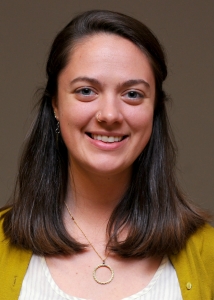 By Emilie Bouvier
By Emilie Bouvier
“Think of a time in which you powerfully experienced public space.” This is what I asked a room of faith leaders this week at the Peer Group Lunch and Learn I led this week. We went around and told stories (in two sentences or less!) about everything from rallies to hospital waiting rooms. What came to my mind to share from my own experience was the smell of crackling cedar logs and crisp clear feel of prairie air in late October. I thought of the tarped shelter over a microphone next to the sacred fire that functioned as the central public space at the Octeti Sackowin camp of Standing Rock.
As people arrived in camp they were invited to the mic to share why they came and their connection the water and native rights. As the sunset lit up the tall grasses with tones of orange and red, songs would rise from the scratchy amplification of the feeble little sound system and reverberate through camp. Drums and singing, stories and prayers. I was honored to stand in that space and bear witness to the presence and narratives that bound the people together.
I heard many languages, not only from global allies but from those spoken by native folks here. I learned recently that the people of the native nations in the Americas pre-colonization spoke 350 different languages. Potawatomi, Bodewadmimwin, Lakota, Dakota, Hopi, Seminole, and many more.
LATELY EVERYTHING SEEMS to remind me of Pentecost and this story is no exception. I immediately think of that cacophony of languages and stirring of the spirit that compelled these disciples out of an upper room into the public space of the street – citing prophets, proclaiming a new way centered on hope and healing, washing new believers in holy water, and sharing all things in common.
Acts 2 is such a compelling text, one that I’ve been thinking about for weeks as we make the journey from the empty tomb to the tongues of fire. I’m struck by the sudden thrust into public ministry, as these disciples literally go from sitting around a table in a house to speaking in many languages on the street corner, abruptly, with no interlude.
The Spirit here is not abstract, we’re given these powerful, physical details: and suddenly from heaven there came a sound like the rush of a violent wind, and it filled the entire house where they were sitting. Divided tongues, as of fire, appeared among them, and a tongue rested on each of them. (Acts 2:2-3). Rushing wind, fire, power. Later in this story water and breaking bread make an appearance. There’s a very visceral and sacramental nature to this story in all its earthiness and elemental nature.
“This fossil fuel is not the oil of anointing; this oil never makes an appearance in our scriptures.”

I think again of the power these elements have and the tangible impacts they bear when I recall what I witnessed at Standing Rock. Water has the power to nourish, wash, and heal – to give life and hold meaning in sacred ceremony.
And water is threatened by pipelines carrying crude oil to fuel an instable system for powering society. This fossil fuel is not the oil of anointing; this oil never makes an appearance in our scriptures.
Yet the power of wind fills the whole house where they were sitting, and can fill too our houses with the literal electric power we need for our day. Wind power cost has dropped 58 percent in the past five years and is the cheapest form of energy (besides energy efficiency). Wind is currently the largest renewable energy source for Minnesota, accounting for nearly 18 percent of Minnesota’s electricity in 2016, ranking sixth in the nation for wind energy as a share of total electricity generation.
This transformation is hopeful, but with 78 percentof our electricity coming from dirty energy, including 44 percent coming from coal, we know we still have a long way to go and need to keep pressing for a fast and equitable transition of our energy economy.
Wind power cost has dropped 58 percent in the past five years
and is the cheapest form of energy (besides energy efficiency).
In this time of celebrating the call of God’s people to public ministry and the commitment of this new community to caring for the common good, asking questions about our energy use and advocating for sustainable sources in the public square seems like a good response – to the prodding spirit and the call of my neighbors I heard echoing around the sacred fire.
One possible response is signing on to urge an increase the Renewable Energy Standard. It’s clear as legislators recently wrapped up the 2017 legislative session, we’re at best going to choose not to take steps backward on environmental policies. Now is the time to be building for the steps forward we can take in the months to come and look to ways we can continue to make room for the winds of the Spirit – in more ways than one.
Postscript: The Minneapolis Area Synod’s EcoFaith Network prepared Pentecost Worship Resources. If you want to add your name to the Renewable Energy Standard sign on letter, please contact Emilie Bouvier at e.bouvier@mpls-synod.org.
